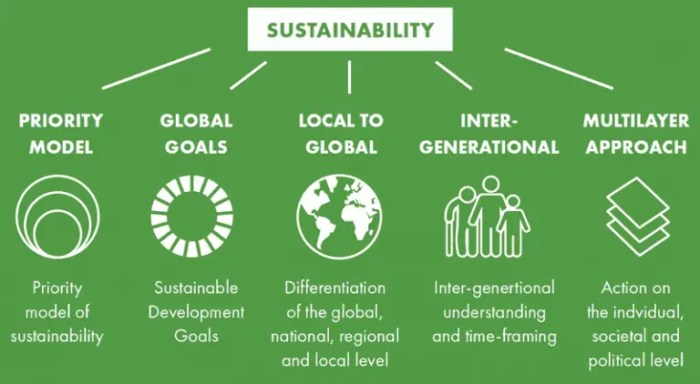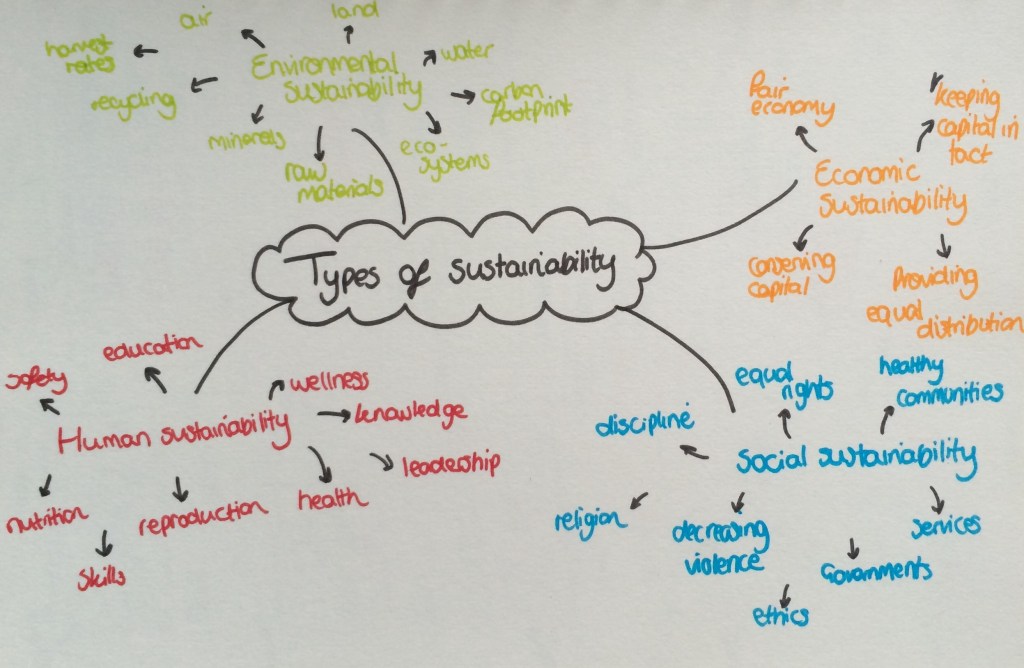One of the attributes of sustainability is that it is adaptable. This means that sustainable practices can be applied to a wide range of industries and situations. For example, sustainable agriculture practices can be used to produce food in a way that minimizes environmental impact, while sustainable manufacturing practices can be used to reduce waste and pollution.
Sustainability is also adaptable in the sense that it can be tailored to the specific needs of a particular community or organization. For example, a community might choose to focus on developing sustainable energy sources, while a business might choose to focus on reducing its carbon footprint.
Sustainability Attributes
Sustainability refers to the ability of a system to maintain its balance and functionality over time. It encompasses three main attributes: environmental protection, economic viability, and social responsibility.
Environmental protection focuses on preserving natural resources, minimizing pollution, and mitigating climate change. Economic viability ensures that sustainable practices are financially feasible and contribute to long-term economic growth. Social responsibility addresses the ethical and societal impacts of sustainability, including the well-being of communities and the fair distribution of resources.
Environmental Impact

Unsustainable practices can have severe environmental impacts, such as air and water pollution, deforestation, and loss of biodiversity. Adopting sustainable practices, such as renewable energy, energy efficiency, and waste reduction, can significantly reduce carbon footprint and mitigate these impacts.
Organizations like Patagonia and Tesla have successfully implemented sustainable initiatives, demonstrating the positive impact of environmental stewardship on both business performance and the planet.
Economic Viability

Sustainability can lead to cost savings and increased profits. Energy-efficient buildings, for example, reduce operating costs, while sustainable supply chains minimize waste and improve efficiency. Additionally, consumers are increasingly demanding sustainable products and services, creating market opportunities for businesses that prioritize sustainability.
Government incentives, such as tax breaks and subsidies, can further promote sustainable practices by making them more financially attractive for businesses.
Social Responsibility

Sustainability considers the social implications of its practices, ensuring the well-being of communities and promoting social equity. Sustainable businesses engage in fair labor practices, support local economies, and address social issues through their operations and philanthropy.
Organizations like Unilever and TOMS have made significant social impacts through their sustainability initiatives, improving the lives of millions worldwide.
Technological Advancements
Technology plays a crucial role in promoting sustainability. Smart grids, for instance, optimize energy distribution and reduce consumption. Electric vehicles and renewable energy technologies help reduce greenhouse gas emissions. Emerging technologies, such as artificial intelligence and blockchain, have the potential to further advance sustainability.
Consumer Behavior

Consumer behavior significantly influences sustainability. Education and awareness campaigns promote informed choices and encourage sustainable consumption. Businesses can play a vital role in shaping consumer behavior by providing sustainable products, transparent labeling, and incentives for responsible purchasing.
Q&A: One Of The Attributes Of Sustainability Is That It
What are the benefits of sustainability?
Sustainability offers a wide range of benefits, including reducing environmental impact, improving economic well-being, and creating a more just and equitable society.
How can I make my business more sustainable?
There are many ways to make a business more sustainable, such as reducing energy consumption, using recycled materials, and offering sustainable products and services.
What is the role of government in promoting sustainability?
Governments can play a key role in promoting sustainability by setting regulations, providing incentives, and supporting research and development.